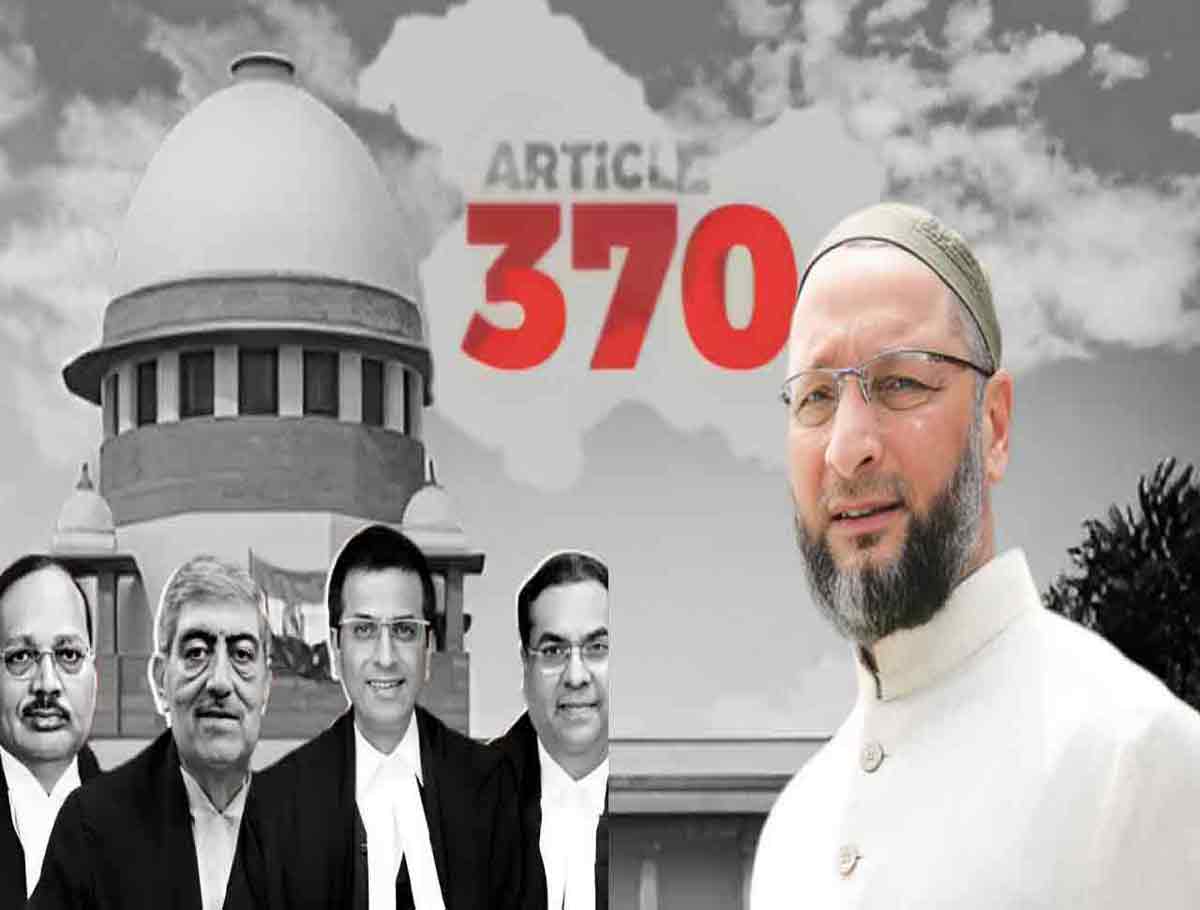Hyderabad, Dec 11 (Hydnow): AIMIM Supremo Asaduddin Owaisi voiced his disappointment following the Supreme Court’s verdict upholding the abrogation of Article 370 in Jammu and Kashmir.
He called the verdict “disheartening” and raised several critical questions about the process and its implications.
Owaisi highlighted the Chief Justice of India’s emphasis on public deliberation as a safeguard against tyranny. He questioned whether revoking a state’s special status under Article 356, with a curfew in place and no functioning elected assembly, qualifies as such deliberation. He pointed out that Kashmiris lacked a voice in the decision-making process on August 5th, 2019.
He further emphasized the importance of federalism as a fundamental principle of the Indian constitution. He argued that this principle implies states have a distinct voice and autonomy within their jurisdiction. He questioned how Parliament could represent the Assembly and pass a resolution that should have been debated and passed by the state legislature.
Owaisi condemned the abrogation, bifurcation, and downgrading of the state as a betrayal of the Union’s promises to the people of Kashmir. He warned that the precedent set by this decision could pave the way for similar actions against other states, citing Chennai, Kolkata, Hyderabad, and Mumbai as potential examples. He drew parallels to Ladakh, which is now governed by a Lieutenant Governor with no democratic representation.
While acknowledging Jammu and Kashmir’s integral part of India, Owaisi emphasized that this integration does not negate its unique constitutional relationship with the Union. He pointed out that this relationship was declared permanent after the dissolution of the state’s Constituent Assembly.
Owaisi expressed concern about the impact of the decision on the Dogras of Jammu and the Buddhists of Ladakh, who face potential demographic changes. He also highlighted the lack of a clear timeline for restoring statehood to Jammu and Kashmir. He urged the government to hold assembly elections as soon as possible, ideally aligning them with the 2024 Lok Sabha elections. (Hydnow)
Next Story:
-
Heavy Rains In Telangana For Next Three Days

The people of Telangana have been alerted because of moderate to heavy rains in the state for the next three days, according to the Indian Meteorological Department (IMD).
Now you can get the latest stories from Hydnow every day. Click the link to subscribe. Click to follow Hydnow’s Facebook page and Twitter and Instagram




